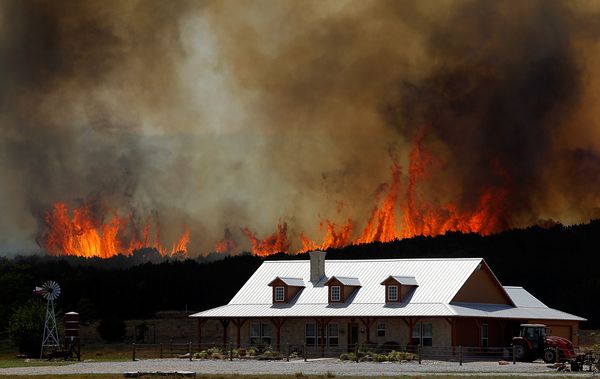Last week’s panic in commodity markets spread like wildfire. That ‘epic rout‘ of commodities reminded us all of a) the fragility of the global financial system and how close it is to breakdown; b) how little our regulators and politicians have done to manage and stabilise the system since the ‘debtonation’ of 07-09; c) how poorly economists have served both regulators and politicians, and d) how much ordinary citizens in rich and poor countries suffer from this economic dystopia.
We live in an upside-down world, where unregulated capital is good; regulated capital bad. Where
“the love of money as a possession — as distinguished from the love of money as a means to the enjoyments and realities of life”
is considered a very good thing, and morally acceptable, whereas it is, as Keynes wrote,
“a somewhat disgusting morbidity, one of those semi-criminal, semi-pathological propensities which one hands over with a shudder to the specialists in mental disease…..”
A world in which usury is taken for granted, encouraged even by the authorities. And in which our leaders (moral, political and economic) seldom express distaste for its ugly implications. Rather, they (the politicians, bankers, economists) insist on extracting every ounce of blood/suffering/loss/indignity from the Irish/Greek/Portuguese/Spanish people to meet the usurious demands of European bankers. And very few – apart from noble friends like Mark Weisbrot, in this New York Times piece – protest at the action of e.g. the ECB and EU governments.
Where government intervention is bad; and a lackadaisical, devil-may-care attitude by regulators, central bankers and politicians is good. Where high real rates of interest (as opposed to the very low rates set by central banks) are seen by some as ‘good’; and a regime of low rates of interest across the spectrum is considered bad, as in this argument by Carmen Reinhart in an IMF paper.
A world in which we, the economics profession, governments and politicians watch extreme weather events, with a passivity and resignation that is almost pathological. But, like children, become very animated and engaged by a fairy tale wedding.
We live in a world created above all, by economists, who designed the economic framework for the mess we are in; who encourage us to be passive to, and accepting of, the destructive fury of market forces; and yet who cannot admit to their role in this crisis, will not discuss it; instead blame those same, supposedly abstract, forces….and have no answers for our dazed and confused politicians.
And because I am in a dark mood today, fear that Keynes was right when he wrote that:
‘For at least another hundred years we must pretend to ourselves and to everyone that fair is foul and foul is fair; for foul is useful and fair is not.
Even while:
“April was a month of historic climate extremes across much of the United States, including: record breaking precipitation that resulted in historic flooding; recurrent violent weather systems that broke records for tornado and severe weather outbreaks; and wildfire activity that scorched more than twice the area of any April this century.”
No: extreme weather events,
“Avarice and usury and precaution must be our gods for a little longer still. For only they can lead us out of the tunnel of economic necessity into daylight.’
But can they? In time? We may not have one hundred years left, Mr Keynes.



Which one of Keynes books are these quotes in? I tried to get thru THE GENERAL THEORY but there was so much calculus in it that I just wasn’t following it anymore. I don’t remember him getting all that moral very often. Maybe it was toward the end.
I do often love Keynes. After all, he’s become a character in my web-comic. I fear he looks at Capitalism something like Churchill looked at Democracy.
The real point here, tho, is the negligent embrace we’ve made of avarice. Simon Johnson makes a very compelling case on this point in 13 BANKERS, that folks don’t even think about it. They believe so deeply that laissez faire is right that… well, damn the Torpedoes. They follow it.
They are without agency. They are slaves to an idea they don’t even know that they are that invested in. Which, also, is straight out of Keynes.
The European banks, via Sarkozy and Merkel, are reaching for the brass ring at the G-8 summit May 26-27 in Paris. They want the G-8 to take a proposal to the G-20 to establish a “bank transaction tax” to steady the financial system and assist “third world development.” Sarkozy says $120 billion a year would go to development, but a universal commercial transaction fee of only 0.25% (a quarter of a percent) would generate about $1.5 trillion annually. That means more than a trillion dollars flowing annually into state treasuries to bolster their obligations to the big banks.
As the late American economist James Tobin advocated way back in the 1980s, the world needs a tax on commercial transactions (the Tobin Tax was focused on currency transactions) to curb speculation and provide a revenue stream to attack the social and ecological problems that now drag civilization toward global catastrophe. But the money can’t be channeled through the banks; it needs to go to civil society and the global grassroots where real problem-solving is possible.
Turning Tobin’s vision on its head, the Sarkozy-Merkel “bank transactions tax” is strategic grab for all the marbles for the banks. They’re counting on catching progressives off-guard, unprepared to resist, and bamboozled by a $120 billion enticement.
If and when there’s going to be Tobin Tax, all of its revenues must go to real, bottom-up problem-solving led by civil society and conducted in local communitites all over the world. Ann, we need to mobilize resistance to this scheme.